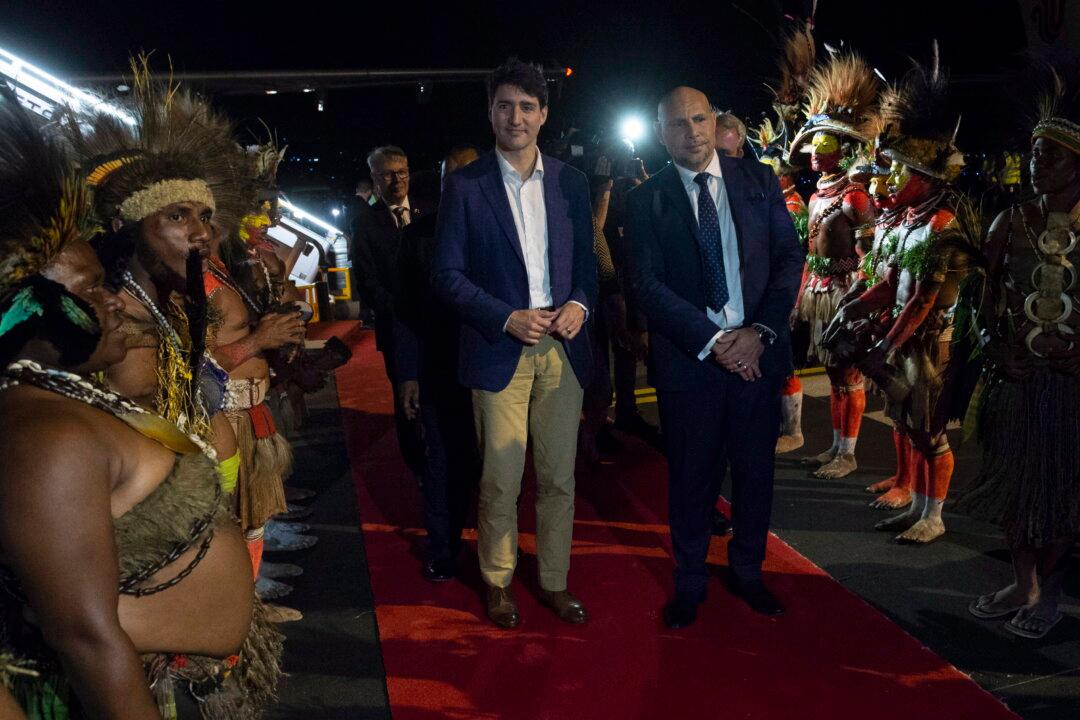PORT MORESBY, Papua New Guinea—Prime Minister Justin Trudeau walks into this weekend’s APEC leaders’ summit with a chance to smooth over lingering sore feelings with some of Canada’s key trading partners on the Pacific Rim.
Trudeau will meet his counterparts from Australia and Japan, and have the opportunity to bump into leaders from the 21 countries in the hallways of the busy summit in Port Moresby, Papua New Guinea.





